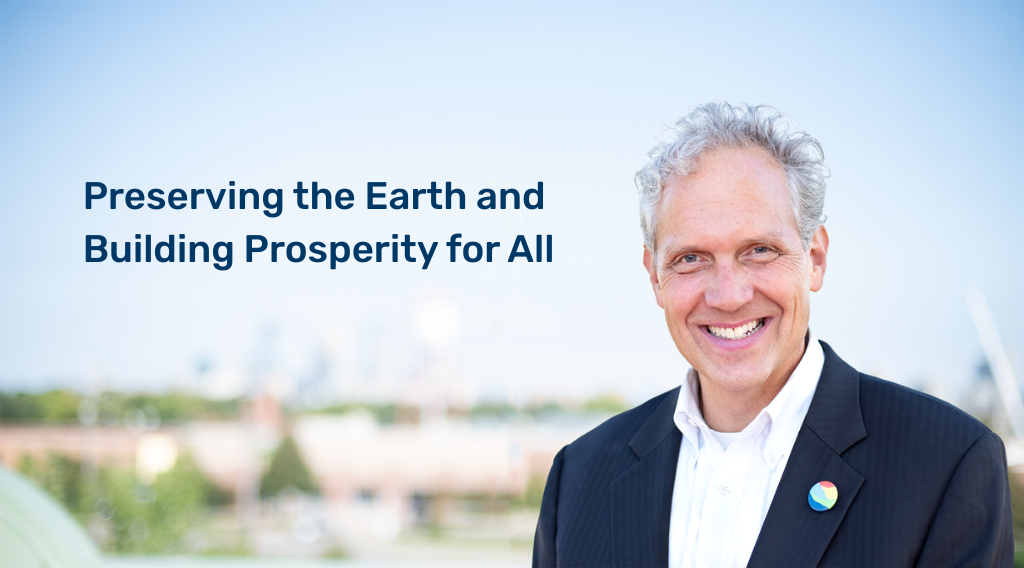
Federal investments can create jobs, promote equity, and reduce emissions
Diverse stakeholders draft 32 recommendations around increasing equitable opportunity, reducing greenhouse gases.
For Immediate Release: April 7, 2021
Media inquiries only
Rebecca Lentz
Great Plains Institute
[email protected]
612-978-2849
Eric Steen
BlueGreen Alliance
[email protected]
612-466-4488
MINNEAPOLIS—Changes in federal infrastructure programs can provide sustainable jobs to families, help achieve net-zero carbon emissions by midcentury, and promote equitable outcomes for all Minnesotans.
Those conclusions come from a regionally diverse group of Minnesota stakeholders—including local and state government, tribal nations, and representatives from labor, energy, environmental organizations, and business. The group, Building Economic Resilience Through Clean Energy and Equity in Minnesota (BERCEE), was brought together by Great Plains Institute and BlueGreen Alliance to seize opportunities in three concurrent challenges:
- The economic impact of a global pandemic
- Longstanding racial disparities
- The need to reduce greenhouse gas emissions
“The investment opportunities that these stakeholders have identified offer Minnesota a triple-win for the economy, the environment, and greater equity. And they are a down payment on closing the opportunity gap for Minnesotans too often left behind,” said Rolf Nordstrom, president and CEO of Great Plains Institute. “The stakeholders and conveners of this conversation are committed to positioning Minnesota for a fast recovery and long-term prosperity, and the time to act is now.”
Specifically, the BERCEE report recommends that short- and long-term policies:
- Provide significant near-term economic and jobs benefits
- Drive emissions toward net zero by midcentury with rapid steps in the near term
- Promote equity and a responsible transition
- Create clear benefits in energy, transportation, built environment, industrial or agricultural systems.
“These ideas are designed to inspire and inform policymakers who want to create a more sustainable, resilient, and better future for all,” Jessica Hellmann, executive director & Ecolab Chair for Environmental Leadership, Institute on the Environment, University of Minnesota. “The pandemic has roiled our economy and society. But out of economic stress also emerges opportunity and responsibility.”
The report includes a list of recommendations for federal investments that will provide the greatest opportunity for broad employment in Minnesota and create an economy that is more equitable and increasingly decarbonized.
“We have a chance to get the state’s economy on the right track by putting tens of thousands of Minnesotans to work modernizing buildings, repairing crumbling infrastructure, and restoring our natural resources,” said Kevin Pranis, marketing manager for the Laborer’s International Union of North America of Minnesota and North Dakota (LIUNA MN and ND).
The 32 recommendations cover a range of energy-related topics, including:
- Research and development
- Conservation
- Workforce training
- Transmission
- Clean energy manufacturing
- Water infrastructure
- Electric vehicles
- Equity and low-income impacts
- Agriculture and forestry
- And rural energy issues.
The report’s release comes just as Congress passed a bill focused on improving economic conditions impacted by the pandemic and is shifting its attention to an infrastructure plan that has a focus on energy-related funding. The BERCEE process has positioned stakeholders in Minnesota to take advantage of resources that may come from the federal government in the coming months.
“As Americans act to renew an economy impacted by COVID-19 and confront the racial and economic disparities laid bare this past year, aggressively addressing the climate and energy crises is a key opportunity to rebuild in new ways,” said Michael Noble, executive director, Fresh Energy. “By creating partnerships between communities, industries, and government, we can chart equitable paths to deep decarbonization and sustainability.”
The BERCEE project will shift its focus to coordinate outreach to state and federal entities and identify next steps Minnesota must take to transition to an equitable and decarbonized economy.
About Great Plains Institute (GPI): As a nonpartisan, nonprofit organization, the Great Plains Institute works with diverse interests to transform the energy system to benefit the economy and environment. We combine our unique consensus-building approach, expert knowledge, research and analysis, and local action to work on solutions that strengthen communities and provide greater economic opportunity through the creation of higher-paying jobs, expansion of the nation’s industrial base, and greater domestic energy independence while eliminating carbon emissions.
About BlueGreen Alliance (BGA): A nonprofit organization, BGA unites America’s largest labor unions and its most influential environmental organizations to identify ways today’s environmental challenges can create and maintain quality jobs and build a stronger, fairer economy. We are guided by the principle that we can no longer choose between good jobs and a clean environment—that the actions we take to create quality jobs and to protect working people and the environment must go hand-in-hand, and that together, we will build clean, thriving and fair economy. Our work is centered around three key objectives: clean jobs, clean infrastructure, and fair trade.


